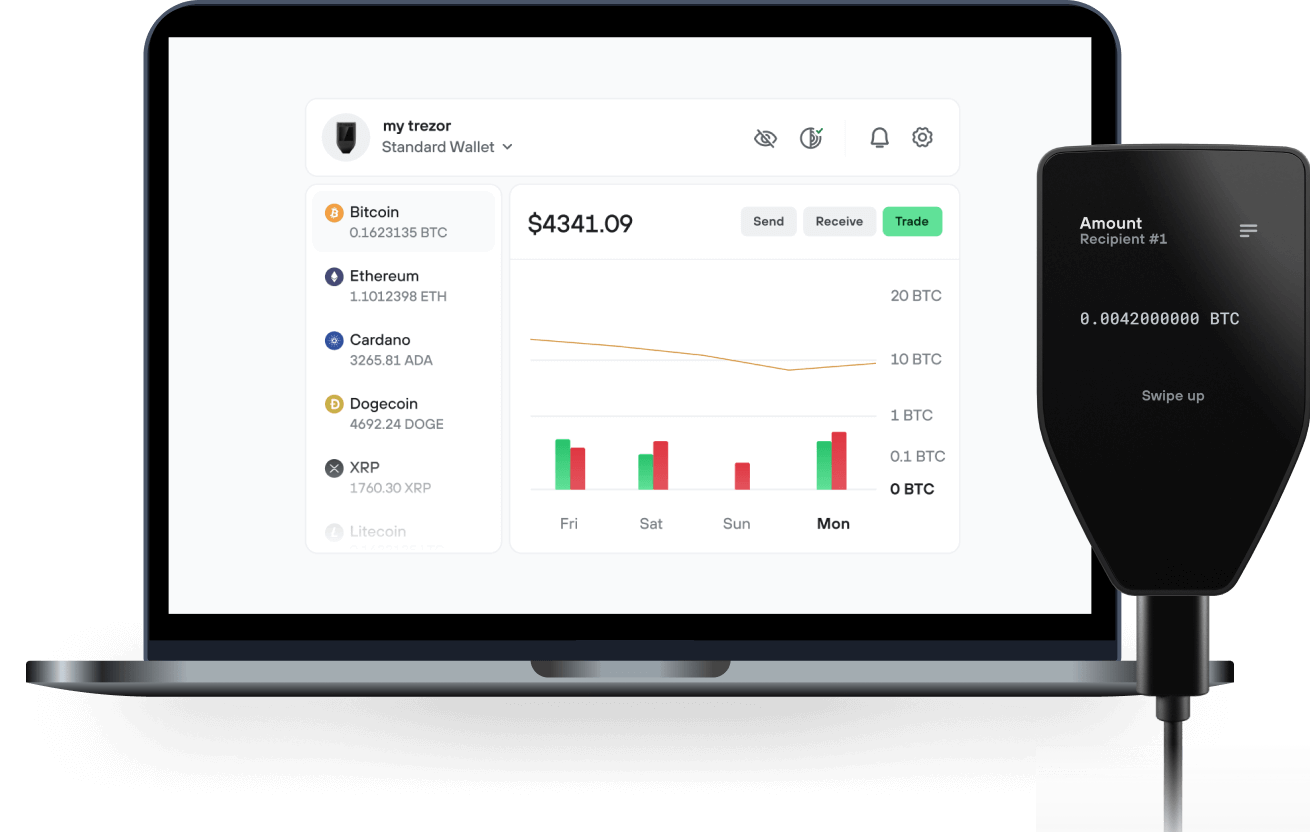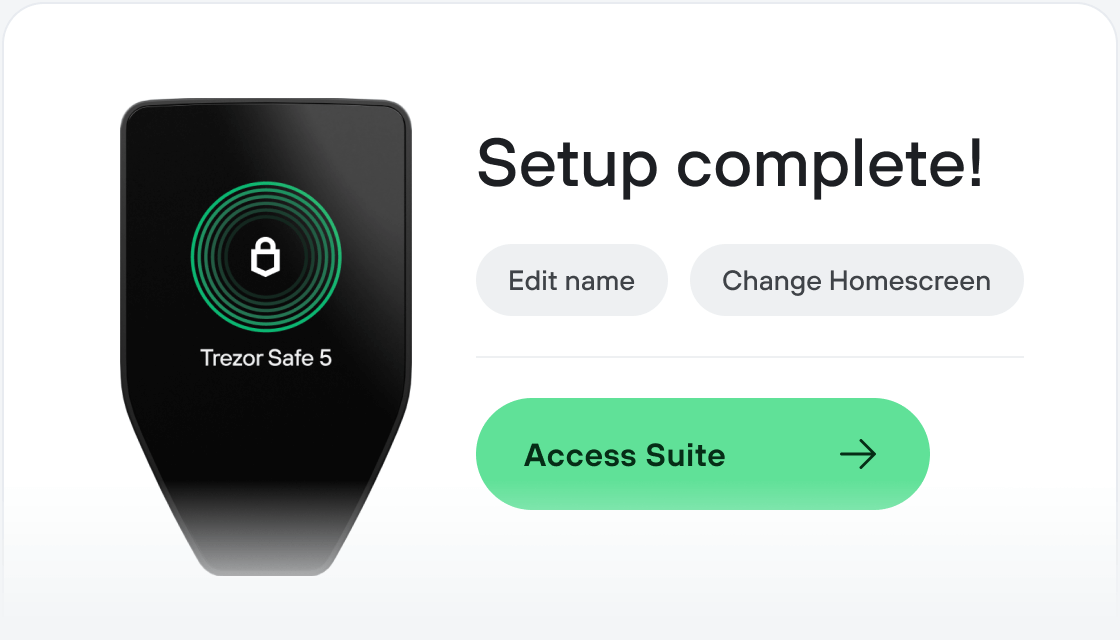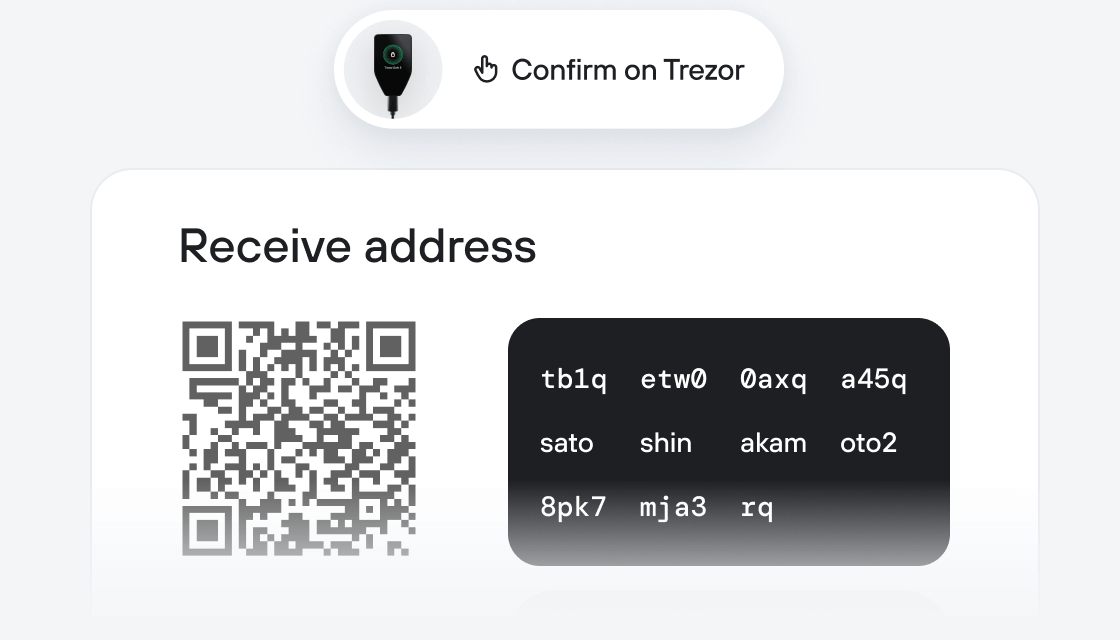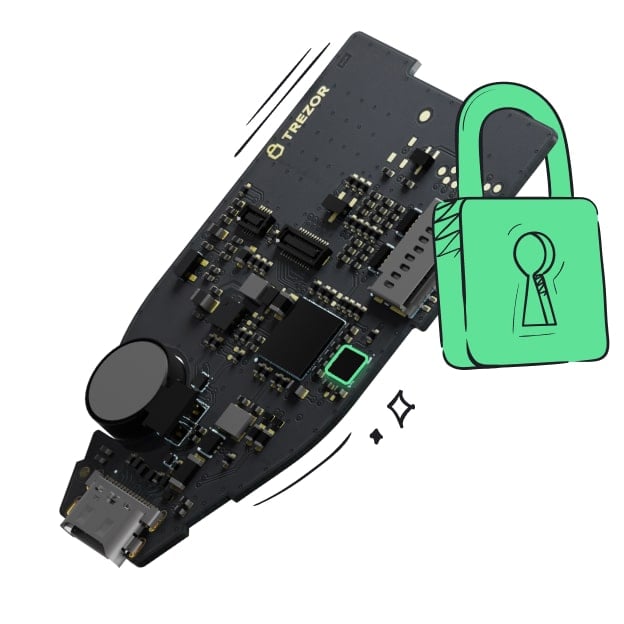Safe & secure Livepeer wallet
Take control of your Livepeer assets with complete confidence in the Trezor ecosystem.
- Secured by your hardware wallet
- Use with compatible hot wallets
- Trusted by over 2 million customers

Send & receive your Livepeer with the Trezor Suite app

Send & receive

Buy & swap
Trezor hardware wallets that support Livepeer
Sync your Trezor with wallet apps
Manage your Livepeer with your Trezor hardware wallet synced with several wallet apps.
Trezor Suite
MetaMask
Rabby
Supported Livepeer Networks
- Ethereum
- Harmony Shard 0
- Arbitrum One
Why a hardware wallet?
Go offline with Trezor
- You own 100% of your coins
- Your wallet is 100% safe offline
- Your data is 100% anonymous
- Your coins aren’t tied to any company
Online exchanges
- If an exchange fails, you lose your coins
- Exchanges are targets for hackers
- Your personal data may be exposed
- You don’t truly own your coins
How to LPT on Trezor
Connect your Trezor
Install Trezor Suite app

Transfer your LPT

Make the most of your LPT
Trezor keeps your LPT secure
 Protected by Secure Element
Protected by Secure ElementThe best defense against both online and offline threats
 Your tokens, your control
Your tokens, your controlAbsolute control of every transaction with on-device confirmation
 Security starts with open-source
Security starts with open-sourceTransparent wallet design makes your Trezor better and safer
 Clear & simple wallet backup
Clear & simple wallet backupRecover access to your digital assets with a new backup standard
 Confidence from day one
Confidence from day onePackaging & device security seals protect your Trezor’s integrity
The Livepeer project aims to deliver a live video streaming network protocol that is fully decentralized, highly scalable, crypto token incentivized, and results in a solution which can serve as the live media layer in the decentralized development (web3) stack. In addition, Livepeer is meant to provide an economically efficient alternative to centralized broadcasting solutions for any existing broadcaster. In this document we describe the Livepeer Protocol - a delegated stake based protocol for incentivizing participants in a live video broadcast network in a game-theoretically secure way. We present solutions for the scalable verification of decentralized work, as well as the prevention of useless work in an attempt to game the token allocations in an inflationary system.
The Livepeer Token (LPT) is the protocol token of the Livepeer network. But it is not the medium of exchange token. Broadcasters use Ethereum's Ether (ETH) to broadcast video on the network. Nodes who contribute processing and bandwidth earn ETH in the form of fees from broadcasters. LPT is a staking token that participants who want to perform work on the network stake in order to coordinate how work gets distributed on the network, and to provide security that the work will get done honestly and correctly. LPT has the following purposes:
It serves as a bonding mechanism in a delegated proof of stake system, in which stake is delegated towards transcoders (or validators) who participate in the protocol to transcode video and validate work. The token, and potential slashing that occurs due to protocol violation, is necessary in order to secure the network against a number of attacks. More below. It routes work through the network in proportion to the amount of staked and delegated token, essentially serving as a coordination mechanism.
It is a unit of account that is specific to the Livepeer ecosystem, which forms the basis of a SectorCoin concept, applicable to additional functionality to be introduced in the future. Services such as DVR, closed captioning, ad insertion/monetization, and analytics can all plug into the Livepeer ecosystem and potentially make use of the security provided by staking LPT.
An initial allocation of Livepeer Token will be distributed so that stakeholders can fulfill various roles in, and use the network, and then additional token will be issued according to algorithmically programmed issuance over time.
Following the conventions of Ethereum and many popular ERC20 tokens, LPT will be divisible by 10 ^ 18, with larger denominations such as the LPT itself intended to be used for user level transactions such as staking, and smaller denominations intended to be used for protocol accounting.